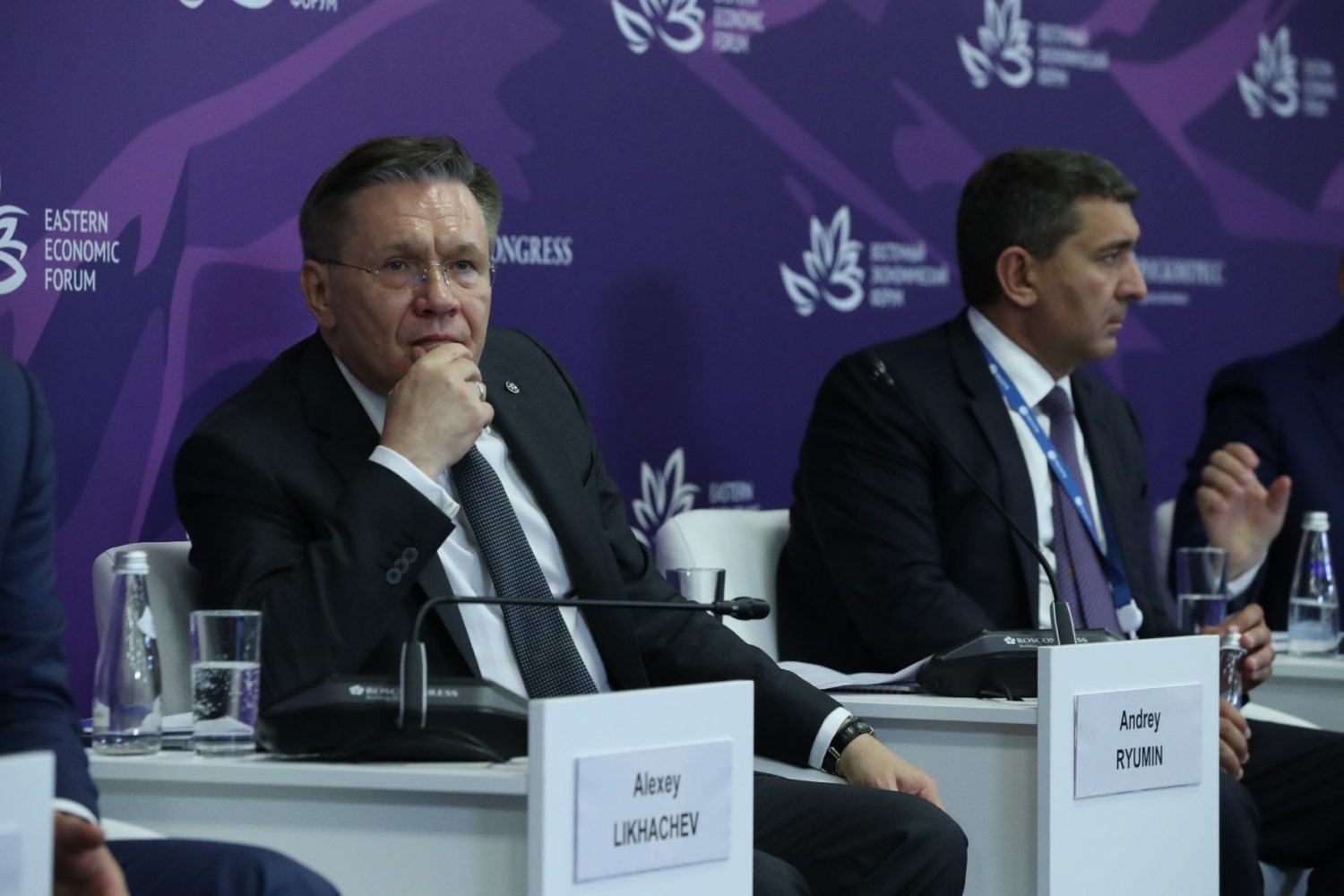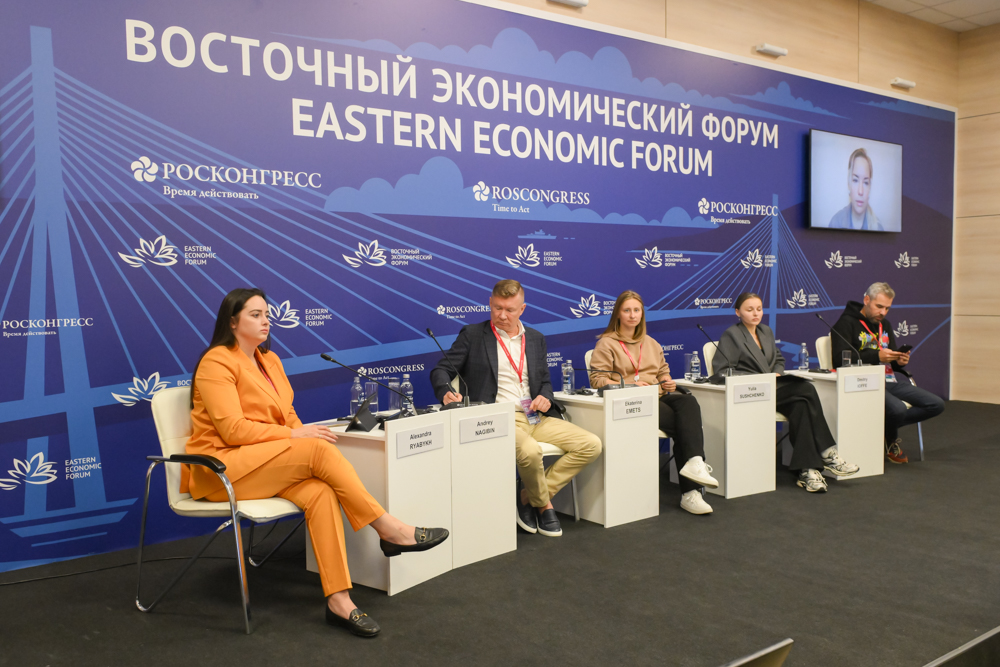
Asian Markets Welcome Us
back to contentsTaking part in the Eastern Economic Forum (EEF) held in early September, Rosatom Director General Alexey Likhachev spoke about cooperation with Asian countries and logistics prospects for the Northern Sea Route.
Held for the ninth time, the EEF aims to strengthen ties between the Russian and international community and promote the development of the Far Eastern region of the Russian Federation. This year’s forum brought together over 7,000 guests from 75 countries, resulting in more than 300 agreements signed.
“We feel very comfortable in Asia,” Alexey Likhachev said with assurance at the forum. He cited as an example the visit of Russian President Vladimir Putin to Mongolia, which took place during the first days of the EEF. “In Mongolia, we once again saw much interest in our technologies and projects, ranging from uranium mining to construction of nuclear power plants, and also a high level of trust from our partners. Nuclear technologies can bring our bilateral relations with Mongolia to a new level,” Rosatom chief was confident. The technical design of an SMR nuclear power plant for the country is about to be approved. The power plant is supposed to supply power to the city of New Kharkhorum, which the Mongolian authorities plan to establish on the site of the ancient capital of Genghis Khan’s empire.
Rosatom also has far-reaching plans to expand its relations with China, India, and Bangladesh. “As a rule, once every six to seven years we conclude framework agreements on mutually beneficial terms. They provide, on our part, for the supply of nuclear power plants, equipment, and fuel. In turn, Rosatom gets involved in the development and localization of new technological solutions. This is how our interests are balanced. We know what the roadmap in our relations with China, India, and Bangladesh looks like for today, and we are working on a roadmap for tomorrow,” Alexey Likhachev said.
Negotiations are underway with a number of countries to establish a nuclear industry. These are, for example, Thailand, the Philippines, and Myanmar. “The time will come when we will move from shared intentions to down-to-earth action,” Alexey Likhachev expressed his confidence. Basically, these countries are interested in small-scale generation facilities, both onshore and offshore, as they are located on islands or have a long coastline. Offshore solutions are extremely attractive to potential customers as they can save on infrastructure. In addition, offshore nuclear generation facilities offered by Rosatom have a refueling interval of about 10 years. “This is a kind of nuclear battery that lasts for years,” Rosatom Director General explains.

Young people are getting increasingly more involved in Russian nuclear projects, and more effort is being made to provide appropriate professional education and training. Many young talents from other countries study at Russian universities under Rosatom quotas. “Even in the countries where the nuclear seed has not yet sprouted, a nuclear elite is already being formed. There are examples when guys from Myanmar work in Bangladesh, and guys from Bangladesh are involved in our Turkish projects,” Alexey Likhachev said.
“Asian markets welcome us despite all the attempts to cut Russia off from the global markets. I am sure that we will be able to spur the development of these markets and, most importantly, give them game-changing technology. The comprehensive decision to embark on a nuclear program will bring their economy, education, medicine, research and agriculture to a totally new level,” Alexey Likhachev summarized.
Great NSR
The head of Rosatom also outlined the nuclear corporation’s strategy for the development of the Great Northern Sea Route. This is a commercial sea lane to link Far Eastern ports with Kaliningrad and St. Petersburg. Improving port facilities and infrastructure on this route will solve three tasks.
First, this will ensure uninterrupted freight transportation within Russia. Second, this will contribute to export-oriented Arctic projects. Asian and East Asian markets are interested in energy resources and metals mined in the Arctic. “Russian mining projects are now under strong pressure from sanctions. The growth in freight shipments might sometimes be decreasing, but we are working hard to already see a return to previous growth rates,” Rosatom chief pointed out. The third task is international container transit.
“Three functions tie together in a complementary way: on the one hand, we ensure year-round navigation with our growing fleet of advanced nuclear icebreakers. On the other hand, the Northern Sea Route administration has spent the past few years doing its best to improve navigation safety and long-term planning on the route. In addition, our partners from South-East Asia, East Asia, the People’s Republic of China and the Arab Emirates, as well as Russian operators, make a direct contribution to the growth of freight traffic,” Alexey Likhachev concluded.




